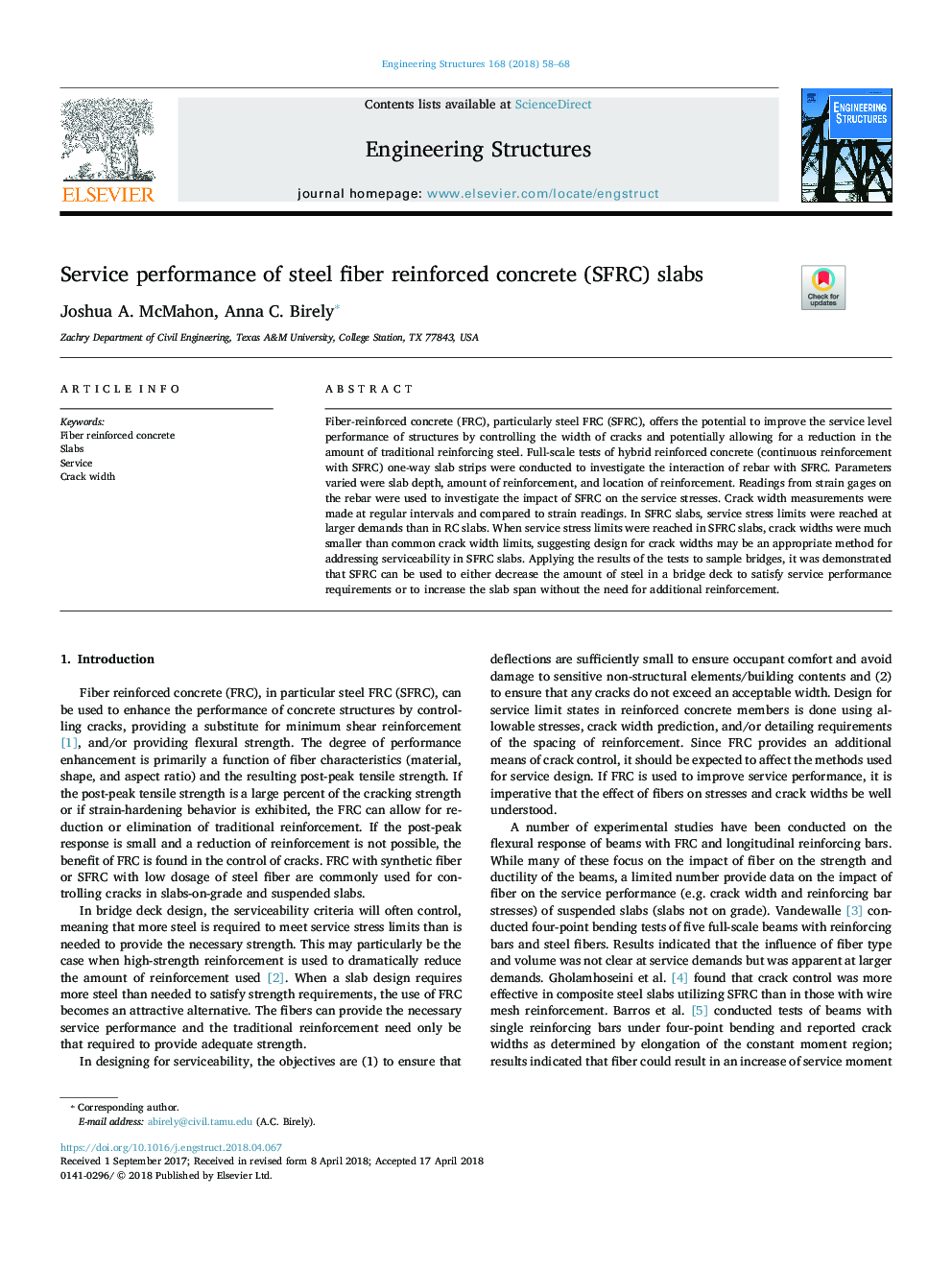| Article ID | Journal | Published Year | Pages | File Type |
|---|---|---|---|---|
| 6736842 | Engineering Structures | 2018 | 11 Pages |
Abstract
Fiber-reinforced concrete (FRC), particularly steel FRC (SFRC), offers the potential to improve the service level performance of structures by controlling the width of cracks and potentially allowing for a reduction in the amount of traditional reinforcing steel. Full-scale tests of hybrid reinforced concrete (continuous reinforcement with SFRC) one-way slab strips were conducted to investigate the interaction of rebar with SFRC. Parameters varied were slab depth, amount of reinforcement, and location of reinforcement. Readings from strain gages on the rebar were used to investigate the impact of SFRC on the service stresses. Crack width measurements were made at regular intervals and compared to strain readings. In SFRC slabs, service stress limits were reached at larger demands than in RC slabs. When service stress limits were reached in SFRC slabs, crack widths were much smaller than common crack width limits, suggesting design for crack widths may be an appropriate method for addressing serviceability in SFRC slabs. Applying the results of the tests to sample bridges, it was demonstrated that SFRC can be used to either decrease the amount of steel in a bridge deck to satisfy service performance requirements or to increase the slab span without the need for additional reinforcement.
Related Topics
Physical Sciences and Engineering
Earth and Planetary Sciences
Geotechnical Engineering and Engineering Geology
Authors
Joshua A. McMahon, Anna C. Birely,
